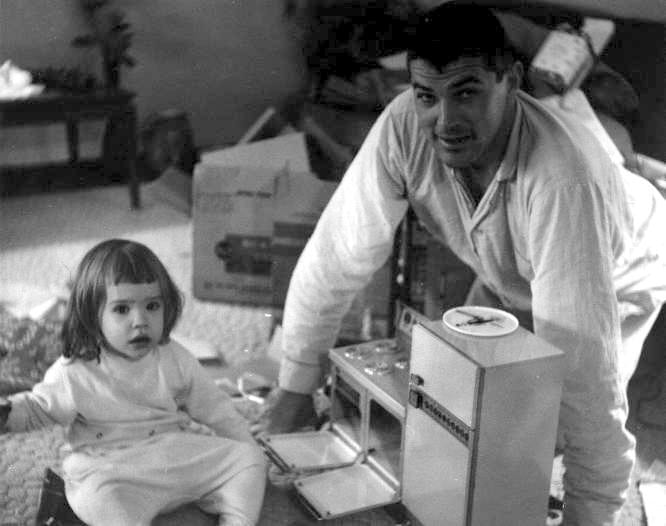“Smart Clip Reminds Parents of Babies Left in Cars”
Tag Archive for: technology

I learned about Occam’s razor in a college philosophy course and it made a strong impression on me. At the time, I was strictly a science major – biology and chemistry – and the idea appealed to me.
According to Wikipedia, Occam’s razor is
“a principle of parsimony, economy, orsuccinctness used in problem-solving devised by William of Ockham (c. 1287–1347). It states that among competing hypotheses, the one with the fewest assumptions should be selected. Other, more complicated solutions may ultimately prove correct, but—in the absence of certainty—the fewer assumptions that are made, the better.”
In other words, the simplest solution is generally the best. We humans tend to make things more complicated than they need to be and often, when I am feeling particularly perplexed, this bit of wisdom reminds me to step back, breathe deeply, and think about a simpler way to get to the result I am seeking.
Yesterday, when I read a story about some newly genetically modified bananas that are set to be tested on human beings, the full force of this theory slapped me upside the head. You can read the entire story here, but the gist of it is this: For the last nine years, researchers in Australia, backed by the Bill & Melinda Gates Foundation, have been attempting to enrich bananas with Vitamin A in an effort to combat the lack of this vital nutrient in the diets of many African children. Vitamin A deficiency can lead to blindness, immune deficiencies, abnormal brain development, and death. And so, these researchers have spent years and years and untold millions of dollars attempting to engineer a better banana and they think they have finally done it. They will begin feeding it to human beings soon (the article does not say which human beings where) and hope that by 2020, (a mere six years from now), they can begin planting it in African countries and harvesting it.
Beyond the obvious issues I have with GMO foods and human trials whose effects we cannot possibly predict, I am speechless. I know that Bill Gates’ life was founded and built on technology, and I know that he has seen it do amazing things. I understand that he is completely besotted with the idea of technological solutions for nearly every problem he sees, and I know that his foundation has long been in bed with the likes of Monsanto, but this entire endeavor is so wasteful and misguided I can barely breathe. I cannot claim to ever have worked with the man, so I don’t know what his managerial style is, but I can’t imagine being a part of his organization and not pointing out the fact that a potential solution to Vitamin A deficiency and malnutrition ALREADY EXISTS.
Those of us humans who know a little about nutrition and real food call them sweet potatoes. They grow quite well in many African climates and have boatloads of beta-carotene – the form of Vitamin A that has been engineered into these bananas – and have already been tested on humans for tens of thousands of years. In the absence of massive amounts of fertilizers and pesticides, they are quite healthy for people of all ages and easily consumed and digested by infants and toddlers. And they didn’t require a massive investment of money or time to develop.
Of course, you can’t patent sweet potatoes, so perhaps therein lies the rub. But if a non-profit organization like The Gates Foundation is truly interested in solving the problems of world hunger, they ought to stop wasting millions of dollars on R&D and look to the solutions that already exist. Helping African communities get access to a healthy, well-balanced diet is surely simpler than they think. There is no reason to engineer food in order to feed people unless you are blinded by your love of technology. Just because you can engineer it doesn’t mean you should, especially if it will cost more in time and money than a solution that is already available and you can’t be sure the outcome will be good for the people you say you’re interested in serving.

*Note: This photo is not of me. This girl is waaaaay younger than I was when I got my Easy Bake. I got it from Wikimedia Commons
Times have changed.
Man, even thinking about uttering that phrase makes me feel old – as old as I thought my grandparents were when I was a kid, and that’s ancient!
I was having coffee with the mother of one of Eve’s friends yesterday and somehow we got to talking about the things we fear most about having a teenage daughter. It’s hard to even begin to know what we are up against, given how different their world is from what we knew.
The two of us shared the requisite stories of summer days spent completely unsupervised by anyone other than our older siblings (who often meant us as much harm as not). Those mornings when we would dash out the door in packs, or looking for the roving packs of neighbor kids, to the familiar refrain of, “Be back in time for dinner!” were absolutely priceless. Not in small part due to the fact that if our parents had known half of the stupid stunts we pulled, their hearts would have stopped no less than a dozen times a day.
We did things I wouldn’t let my girls do one tenth of. I rode my bike barefoot or with flip-flops (and lost toenails when I crashed). I rode on the handlebars of my brother’s bike as he tore down our steep hill as fast as he could. No helmets. Only a front brake that would catapult both of us off the bike in a heartbeat if he squeezed it. Oh, and did I mention that at the end of the street was a set of train tracks running perpendicular to it? We never stopped. We never looked. Despite the fact that I lie in bed at night listening to the whistle of those trains coming through, it never occurred to me that one might come ripping down those tracks at the very moment we were bumping across them in a mad dash to get to the park that lay on the other side. Never.
I could go on, but I suspect we all have stories like that from the 1960s and 1970s. Stories of freedom and exhileration and death-defying stunts that we only realized were incredibly stupid when we became parents ourselves.
And then the car seat laws had been enacted.
And we knew about sex predators lurking and lying in wait for unattended children.
And we bought bike helmets and knee pads for our kids and made them wear them.
And the dangers became more nebulous. Like online stalking. Cyberbullying. Sexting.
At least while we were endangering ourselves, we were having fun. Real, actual, physical fun. We were playing slingshot tag (yes, someone sat in a tree with a slingshot and hurled a bb or a gravel bit or a plastic pellet at people running by and if you got hit, you were ‘it,’) or exploring construction sites or playing hide and seek in the condemned house down the road. If someone pissed you off, they did it to your face and, often, others in the group would choose sides and it would be settled right there. Generally with blood spilled or rocks being thrown, but it was settled face-to-face.
When I think about Eve turning 13 and wanting a Facebook page and her own cell phone, my head hurts. I am fully aware that I don’t know most of the things that could go wrong. Yes, we’ve talked about being careful not to share too much personal information about herself and not “connecting” to people online that she doesn’t know in person. But, just like my parents, I’m certain that most of the things she will encounter are not things that I could have anticipated, and it’s because of this that I wish I could get her to trade me her digital identity for some of those other things we had as kids.

I’d give her a woodburning set for her Facebook page. Sure, my brother used it to threaten to brand me if I didn’t do his bidding, but that’s how I learned to stand up for myself. And think creatively (it took me a while, but I finally figured out that if I broke the tip off the damn thing, he couldn’t sear his initials in my left butt cheek).
I’d give her an Easy Bake Oven for her text minutes. My sister and I kept ours in our bedroom. And lest you think we had rats or ants, let me be clear that we only baked cakes in it for the first week we had it. After that we experimented with Shrinky Dinks and our brothers’ socks and Barbie dolls. Yes, in our room. Yes, it’s a wonder that we didn’t burn the freaking house down.
Okay, maybe I wouldn’t trade her any of those things. But I do hope that someday she has a friend that she can reminisce with about all the insane stuff she and her sister pulled behind my back. And I truly, honestly, deeply hope that none of it has anything to do with the Internet or cell phones. Lawn darts maybe. Or a bb gun. Or a bungee cord.

There are so many milestones in life that we take for granted after they’ve come and gone. Those acts that we wait for, sometimes prepare for hour after hour, and once they are performed, there is no going back.
![]()
Thanks for visiting my site. I’m driven by the exploration of human connection and how we can better reconnect to ourselves, our families, and our communities. Aside from my books, I hope you’ll check out my blog, and some of my other writing to find more perspectives and tools.


